Go-karts using TechCard
In D&T, we have been making the prototype of a go-kart.
We have been using a construction material called TechCard to design and make the prototypes which must satisfy a number of design criteria.
The design criteria for our go-karts are:
- It has to roll freely
- It must carry a (toy) person
- It must contain an electrical component to make it move
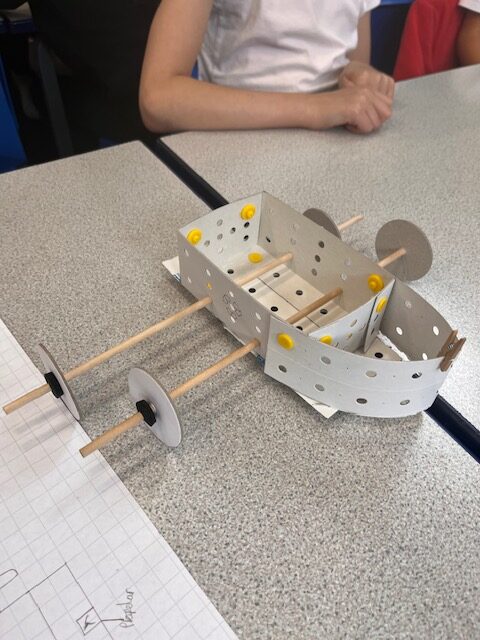
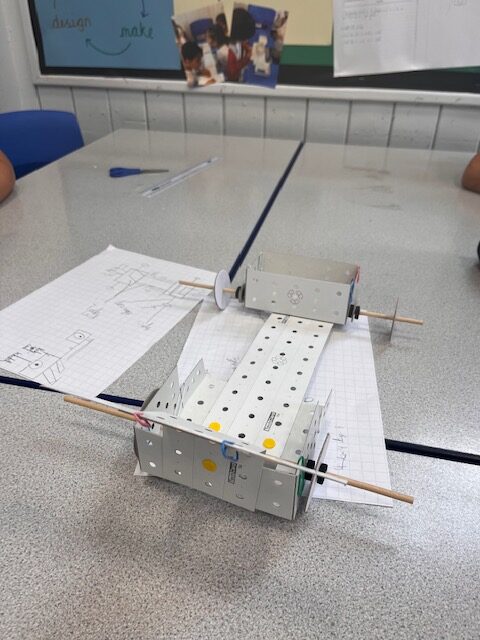
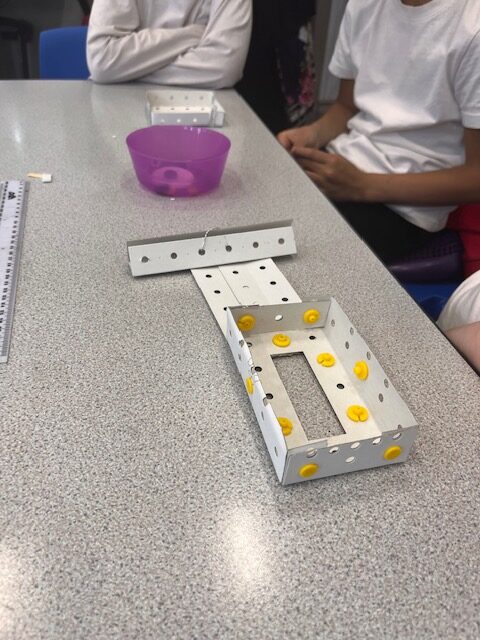
Watch this space to see our finished products!
Being healthy themed week: bike safety
Thank you to Stu and Alex from Edinburgh Bicycle Cooperative, based in Chapel Allerton, for visiting this during our Being Healthy week.
They were kept busy by checking lots of bikes to ensure they were safe to use. Thank you to everyone who brought their bike into school.



Then, Year 5 and 6 learnt some different bike maintenance tips to do on their own bikes.



Living and Learning: Being Healthy themed week – d:side visit
On Tuesday, we had a visit from Dave from d:side. Dave talked to us about keeping our body healthy.
There are three things that should go in our body (also known as our basic needs which is part of our current science learning). These are:
- food
- water
- air
If we have all these things, we might still get poorly so Dave reminded us of keeping safe around medicines and who should (and shouldn’t) give us medicines.
But where does the food, water and air go in our body?
We learnt about different parts of our body and where they are found. We recreated it correctly too!





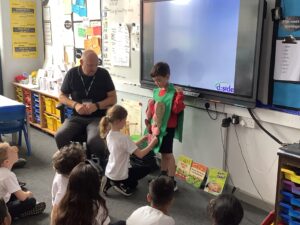

Help at home: Ask your child, what were the different parts of the body we learnt about?
Being Healthy Week!
This week has been full of fun and informative activities all about the topic of ‘Being Healthy’.
On Monday, we had a visit from D:Side Dave, who talked about the risks of smoking and vaping, especially the impacts on children. We also had an orienteering session where the children had to find hidden photos and numbers around the school.






On Tuesday, the children had an assembly about physical activity and how important it is. The main message was ’60 minutes of exercise every day’. This doesn’t need to be all in one go but can be broken down in to smaller chunks of time. We also took part in a bike maintenance workshop.


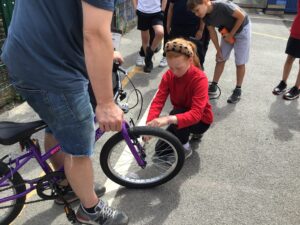
On Wednesday, we had an assembly on healthy eating. We then went to Allerton Grange to take part in a PE lesson.







After that, we had a skipping session with the Skipping School and showcased our skills to the rest of the school.





On Thursday, we had our sports day. On Friday, we finished the week with a talk about promoting good health and a martial arts workshop.



Health Week – what a week!
This week has been a themed week at Moortown – Health Week. This means that the whole school have been focused on being healthy in our bodies and our minds!
Year 4 have been very fortunate to have experienced a range of different activities and talks that relate to health.
Monday began with a visit from Leeds Beckett University. We were outside being active while learning about Orienteering! The children began with a quick warm up activity where they had to find certain areas in the playground that related to a picture. This then led onto map reading and navigating their groups around the school to find letters to spell words. It was a great and unique way of getting our bodies and minds working.



On Tuesday, we had D:side in to talk to us about alcohol and how to be safe around it. We spoke about how to identify if something has alcohol in it. For example, comparing WKDs to J20s. We also spoke about how alcohol affects people such as, changing how their minds and body work. Here are some of the class with the ‘alcohol’ glasses on.


On Friday, we had a martial-arts session. Some of our children already attend a martial-arts club after school so they were prepared and ready for what was to come. Others were starting as beginners but we all worked together as a team so help one another. Here’s some great snaps of us doing some kick-boxing:

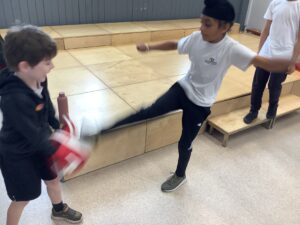

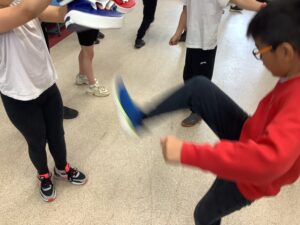
Help at home by asking your child what different types of food fit into these categories:
Carbohydrates, Fruit and Vegetables, Dairy, Fats and Sugars, Protein.
Food tasting
This morning, we were very brave tasting and feeling new food in a bush tucker trial. Even the teachers had a turn!
Help at home: Can your child remember the names of the new food?

Living and Learning: Being healthy themed week
We have had a jam packed week of activities all about staying healthy this week. Here is a little snippet!
A calm and peaceful Yoga session to start on Monday morning!
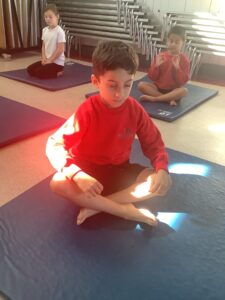

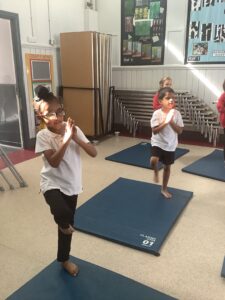
Learning about healthy food with Mrs Taylor.
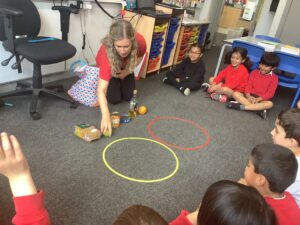
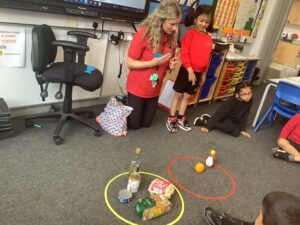
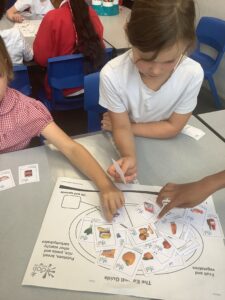
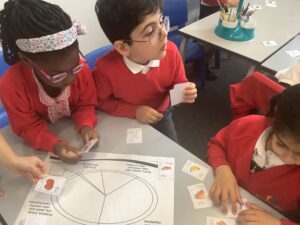
D:side Dave came in to talk to us about how we look after our bodies.
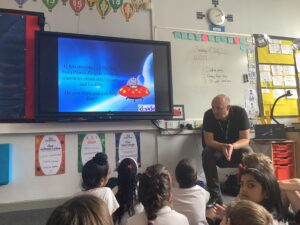
We also had a healthy eating assembly on Wednesday morning!

This was followed by a brilliant skipping session!

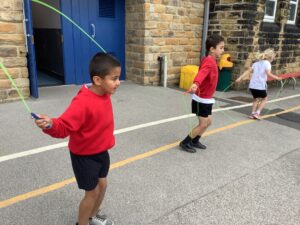
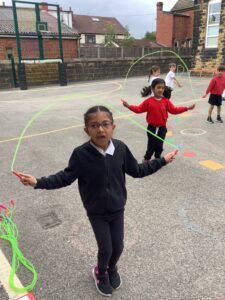
Thursday afternoon we pushed ourselves in sports day! Well done to everyone involved!
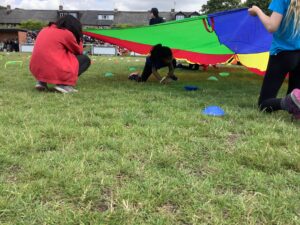

On Friday morning we were very brave tasting new and unusual food in a bush tucker trial!
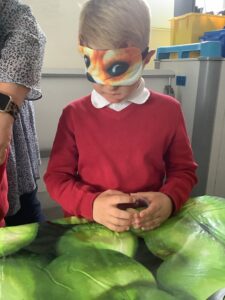
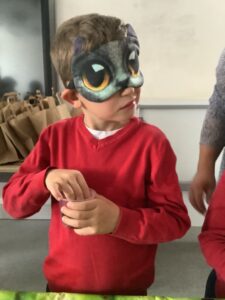
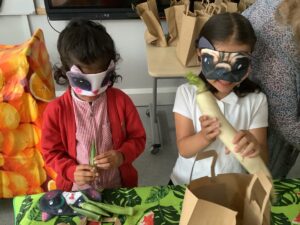

Making Eggy’s Car!
Today, we have started to make ‘Eggy’s Car’.
The design brief for this project is:
- Design and make a moving vehicle.
- The vehicle must protect Eggy the egg from harm if the vehicle crashes.
- The car must be driveable during day or night.
The children used different tools to measure, cut and create. They have now created their bases for their cars and will soon add more details and safety features to them. Watch this space to see more design and technology progress!



Help at home: Discuss what safety features will be added to your child’s Eggy’s car.
Maths Challengers!
Yesterday, four of our wonderful Year 5 mathematicians went to Allerton Grange to compete in their Maths Challenge. It was a full day of events which consisted of 4 different rounds. The children enjoyed themselves and even placed THIRD with a whopping 135 points. Well done to Evan, Ehtasham, Danny and Kian!
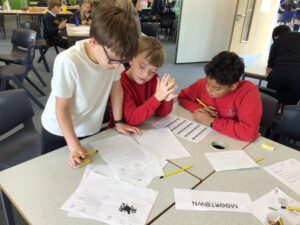
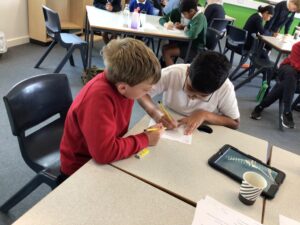
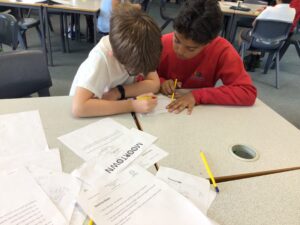
Design and Technology: Go-Karts!
Hello!
As you would have seen on our last post, Year 4 have been busy designing, creating and evaluating their go-kart prototypes!
Today, they had their final session to complete any finishing touches. We had some last minute changes to make sure that they could move freely and hold a model figure. Therefore, some go-karts don’t have a motor and some do!
Here are some of our groups with their go-karts. They were absolutely fantastic and Mrs Charlesworth and I were incredibly impressed.
Well done to Year 4 for working well together as a team and using their skills to create and change go-karts for the better!


